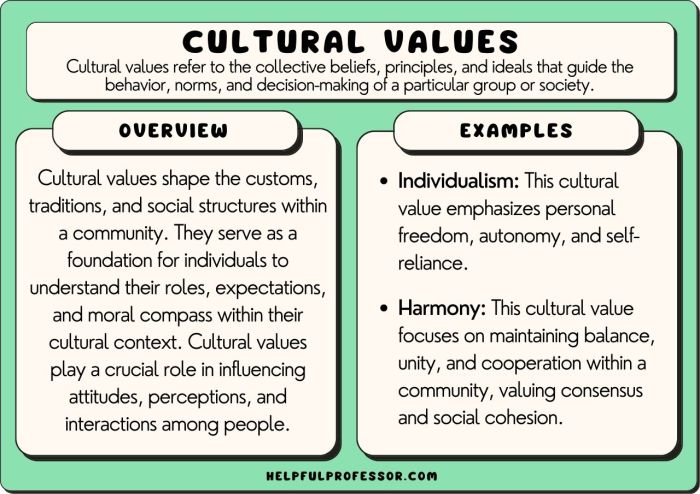According to hancock counselors personal beliefs and values – Exploring the intricate interplay of personal beliefs and values in the counseling profession, this comprehensive guide delves into the ethical considerations, cultural sensitivity, and professional development essential for effective counseling practice.
Personal beliefs and values profoundly shape the counseling process, influencing counselors’ perceptions, interventions, and therapeutic relationships. Understanding these influences is crucial for maintaining ethical boundaries, fostering cultural competence, and promoting client well-being.
Introduction

Personal beliefs and values are fundamental to the practice of counseling. They shape counselors’ perceptions of clients, influence their interventions, and guide their interactions with others. Understanding and managing personal beliefs and values is essential for ethical and effective counseling practice.
Personal beliefs and values can influence the counseling process in various ways. For example, counselors who value empathy may be more likely to listen attentively to clients and demonstrate understanding. Counselors who believe in the importance of self-determination may be more likely to empower clients to make their own decisions.
It is important for counselors to be aware of their own beliefs and values and how they may impact their work with clients.
Ethical Considerations
There are several ethical guidelines related to personal beliefs and values in counseling. The American Counseling Association (ACA) Code of Ethics states that counselors must be aware of their own values and beliefs and how they may affect their work with clients.
Counselors must also avoid imposing their own values on clients and respect clients’ rights to make their own choices.
Potential conflicts between personal beliefs and professional responsibilities can arise in a variety of situations. For example, a counselor who believes that homosexuality is a sin may struggle to provide unbiased counseling to a gay or lesbian client. It is important for counselors to be aware of their own biases and to seek supervision or consultation when necessary to ensure that their personal beliefs do not interfere with their ability to provide ethical and competent counseling services.
Self-Awareness
Self-awareness is essential for understanding personal beliefs and values. Counselors can explore and reflect on their own beliefs and values through a variety of methods, such as journaling, meditation, and supervision. It is important for counselors to be open to feedback from others and to be willing to change their beliefs and values as they learn and grow.
- Journaling:Writing in a journal can help counselors to identify and explore their thoughts and feelings about different topics. This can be a helpful way to gain insight into their own beliefs and values.
- Meditation:Meditation can help counselors to become more aware of their inner thoughts and feelings. This can be a helpful way to identify and challenge their own biases and assumptions.
- Supervision:Supervision can provide counselors with a safe and supportive environment to explore their own beliefs and values. Supervisors can help counselors to identify and challenge their biases and assumptions, and to develop strategies for working with clients from diverse backgrounds.
Cultural Sensitivity
Cultural sensitivity is essential for effective counseling practice. Counselors must be aware of their own cultural biases and assumptions, and they must be able to work effectively with clients from diverse backgrounds. Cultural sensitivity can be developed through a variety of methods, such as education, training, and experience.
- Education:Counselors can learn about different cultures through reading books, attending workshops, and taking courses. This can help them to understand the different values, beliefs, and practices of different cultures.
- Training:Counselors can also receive training in cultural sensitivity. This training can help them to develop the skills and knowledge needed to work effectively with clients from diverse backgrounds.
- Experience:Working with clients from diverse backgrounds can also help counselors to develop cultural sensitivity. This experience can help them to understand the different challenges and opportunities that clients from different cultures face.
Impact on Counseling Relationships
Personal beliefs and values can have a significant impact on the therapeutic relationship. Counselors who are able to manage their own beliefs and values and to work effectively with clients from diverse backgrounds are more likely to build strong and trusting relationships with their clients.
These relationships are essential for effective counseling.
- Building Trust:Counselors who are able to manage their own beliefs and values and to work effectively with clients from diverse backgrounds are more likely to build trust with their clients. This trust is essential for effective counseling.
- Creating a Safe Space:Counselors who are able to create a safe and supportive environment for their clients are more likely to build strong relationships with their clients. This safe space is essential for clients to feel comfortable sharing their thoughts and feelings.
- Empowering Clients:Counselors who are able to empower their clients to make their own decisions are more likely to build strong relationships with their clients. This empowerment is essential for clients to feel in control of their own lives.
Professional Development, According to hancock counselors personal beliefs and values
Professional development is essential for counselors who want to stay up-to-date on the latest research and best practices in the field. Counselors can pursue professional development through a variety of methods, such as attending workshops, reading journals, and taking courses.
It is important for counselors to be open to new ideas and to be willing to change their beliefs and values as they learn and grow.
- Attending Workshops:Attending workshops can be a great way for counselors to learn about new research and best practices in the field. Workshops can also provide counselors with an opportunity to network with other professionals.
- Reading Journals:Reading journals can be a great way for counselors to stay up-to-date on the latest research in the field. Journals can also provide counselors with new ideas and perspectives on counseling.
- Taking Courses:Taking courses can be a great way for counselors to learn new skills and knowledge. Courses can also provide counselors with an opportunity to earn continuing education credits.
Case Studies
Case studies can provide counselors with valuable insights into the impact of personal beliefs and values on the counseling process. The following case study illustrates the importance of cultural sensitivity in counseling.
Case Study:A counselor is working with a client from a different culture. The client is struggling to adjust to life in the United States. The counselor is able to understand the client’s perspective and to provide support and guidance. The counselor’s cultural sensitivity helps to build a strong relationship with the client and to facilitate the client’s adjustment to life in the United States.
FAQ Explained: According To Hancock Counselors Personal Beliefs And Values
What is the ethical responsibility of counselors regarding personal beliefs?
Counselors have an ethical obligation to be aware of their personal beliefs and values and how they may influence their work. They must not impose their beliefs on clients or allow their beliefs to interfere with their professional judgment.
How can counselors develop cultural sensitivity?
Counselors can develop cultural sensitivity through education, training, and experiences that foster an understanding of diverse cultures. They must be respectful of clients’ cultural backgrounds and beliefs, and adapt their interventions accordingly.


